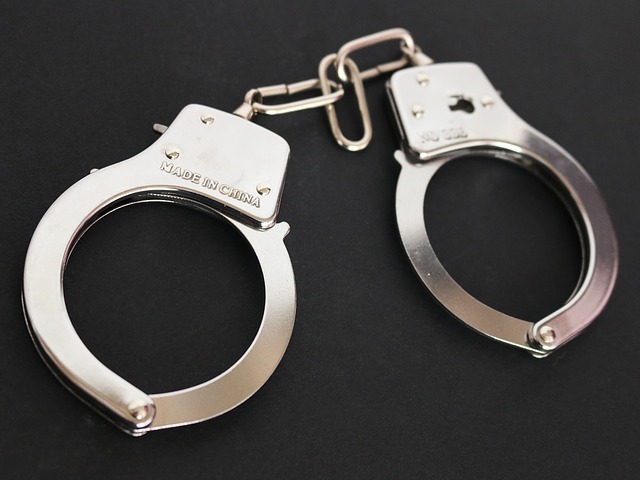 When the legislature decriminalized small amounts of marijuana last year the celebration drowned out many of the law’s shortcomings. In last spring’s rush to push decriminalization to the governor’s desk, the legislature neglected to address certain collateral consequences of the new law. One of these consequences was the illogical relationship between newly decriminalized marijuana and the criminal offense of paraphernalia. This created tension and inconsistency between law enforcement and prosecutors throughout the state, and generally left defendants feeling duped and confused. A few weeks ago we posted an article about the legislature’s efforts to cure this defect, and a bill modifying marijuana paraphernalia is well on its way to becoming state law. Paraphernalia may have been the most glaring and publicized omission in the decriminalization law, but it wasn’t the only one.
When the legislature decriminalized small amounts of marijuana last year the celebration drowned out many of the law’s shortcomings. In last spring’s rush to push decriminalization to the governor’s desk, the legislature neglected to address certain collateral consequences of the new law. One of these consequences was the illogical relationship between newly decriminalized marijuana and the criminal offense of paraphernalia. This created tension and inconsistency between law enforcement and prosecutors throughout the state, and generally left defendants feeling duped and confused. A few weeks ago we posted an article about the legislature’s efforts to cure this defect, and a bill modifying marijuana paraphernalia is well on its way to becoming state law. Paraphernalia may have been the most glaring and publicized omission in the decriminalization law, but it wasn’t the only one.
Continue reading →
Articles Posted in Maryland Legislature
Legislature Mulls Law Regulating SWAT Raids
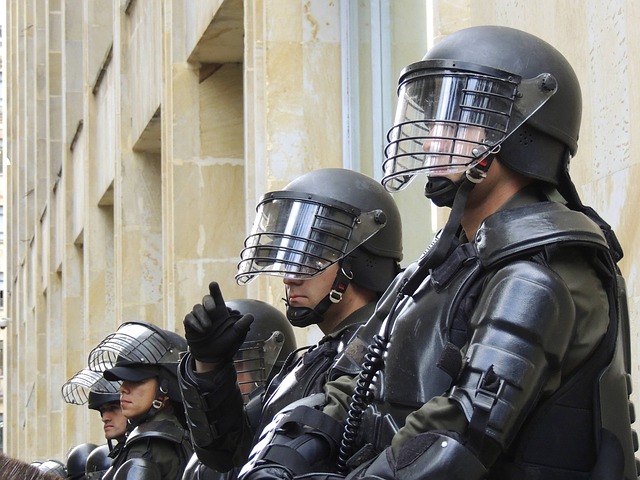 Each year hundreds of innocent people are terrorized by law enforcement’s overuse of their SWAT teams to effectuate searches and arrest warrants. These potentially traumatizing incidents are rarely publicized unless things truly go awry. The public never hears about a SWAT team arresting the wrong person, or destroying a bystander’s property in a search, but those who experience this first hand will never forget. There is little or no legal recourse for those who have been unjustly damaged by a SWAT raid, as cops are typically immune if they are acting on a properly executed warrant. Even if the warrant turns out to be unlawful, the mere fact the cops acted on the reasonable belief that it was valid is enough to avoid liability. When law enforcement’s actions are so egregious as to warrant civil or criminal liability justice is often hard to achieve, as it usually comes down to a cop’s word against the claimant’s. And there are few lawyers willing to take on a case against the government with those odds.
Each year hundreds of innocent people are terrorized by law enforcement’s overuse of their SWAT teams to effectuate searches and arrest warrants. These potentially traumatizing incidents are rarely publicized unless things truly go awry. The public never hears about a SWAT team arresting the wrong person, or destroying a bystander’s property in a search, but those who experience this first hand will never forget. There is little or no legal recourse for those who have been unjustly damaged by a SWAT raid, as cops are typically immune if they are acting on a properly executed warrant. Even if the warrant turns out to be unlawful, the mere fact the cops acted on the reasonable belief that it was valid is enough to avoid liability. When law enforcement’s actions are so egregious as to warrant civil or criminal liability justice is often hard to achieve, as it usually comes down to a cop’s word against the claimant’s. And there are few lawyers willing to take on a case against the government with those odds.
Continue reading →
Marijuana Paraphernalia Decriminalization Imminent
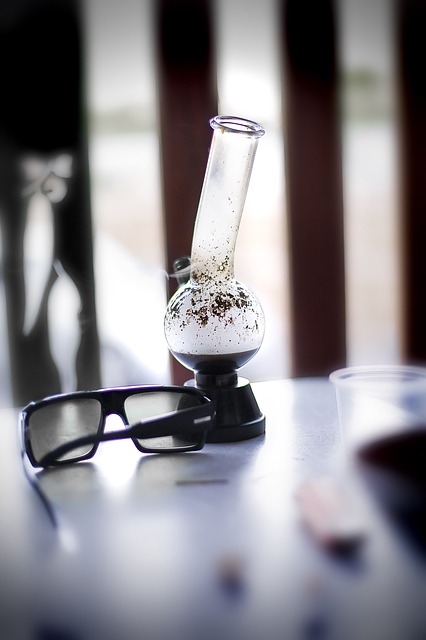 One of the major flaws of last year’s marijuana decriminalization bill was that it failed to address drug paraphernalia. For the past six months possessing less than 10 grams of pot in Maryland has been punishable only by a civil citation. These citations are not available for public inspection and are not entered into an online database. On the other hand possessing marijuana paraphernalia remains a crime punishable by a $500 fine for a first offense, and up to two years in jail for any subsequent conviction. These paraphernalia citations carry the risk of a permanent conviction, are available for public inspection, and are listed on the judiciary case search. The dichotomy between these two laws is alarming, especially considering the broad definition of drug paraphernalia. Section 5-619 of the controlled dangerous substance statute basically gives police officers full discretion to determine what should be considered paraphernalia, and there are few legitimate legal defenses to challenge the this determination. Basically any object that is used in conjunction with the marijuana can be considered paraphernalia. This includes not only pipes and rolling papers, but also plastic baggies and containers.
One of the major flaws of last year’s marijuana decriminalization bill was that it failed to address drug paraphernalia. For the past six months possessing less than 10 grams of pot in Maryland has been punishable only by a civil citation. These citations are not available for public inspection and are not entered into an online database. On the other hand possessing marijuana paraphernalia remains a crime punishable by a $500 fine for a first offense, and up to two years in jail for any subsequent conviction. These paraphernalia citations carry the risk of a permanent conviction, are available for public inspection, and are listed on the judiciary case search. The dichotomy between these two laws is alarming, especially considering the broad definition of drug paraphernalia. Section 5-619 of the controlled dangerous substance statute basically gives police officers full discretion to determine what should be considered paraphernalia, and there are few legitimate legal defenses to challenge the this determination. Basically any object that is used in conjunction with the marijuana can be considered paraphernalia. This includes not only pipes and rolling papers, but also plastic baggies and containers.
Continue reading →
New Bill Would Restrict Police Power To Confiscate Property
 It almost seems like a crime in and of itself. A police officer arrests a person for suspicion of committing a drug offense. Then a few hours (hopefully not longer) later upon being released he or she finds out that the police have kept some of their property. Property that is entirely legal on its own. Typically it’s something small like a few bucks or a cell phone. But in some cases it could be thousands of dollars, a car, boat, or even a house. Time and time again the courts have upheld law enforcement’s right to confiscate a suspect’s property. It is widely understood, if not accepted, that a cop can take a person’s otherwise legal property if that officer believes it will be evidence in a criminal prosecution. Unfortunately this is hardly the only justification an officer needs to take a citizen’s stuff. For decades the law of civil forfeiture has driven defendant’s, their families, and criminal defense lawyers crazy. In a nutshell forfeiture gives police the right to confiscate property they believe is being used to further criminal activity. The definition is vague and general, and the standard of proof is low. Forfeiture is easily abused by law enforcement, and when it is, legally thievery is the result.
It almost seems like a crime in and of itself. A police officer arrests a person for suspicion of committing a drug offense. Then a few hours (hopefully not longer) later upon being released he or she finds out that the police have kept some of their property. Property that is entirely legal on its own. Typically it’s something small like a few bucks or a cell phone. But in some cases it could be thousands of dollars, a car, boat, or even a house. Time and time again the courts have upheld law enforcement’s right to confiscate a suspect’s property. It is widely understood, if not accepted, that a cop can take a person’s otherwise legal property if that officer believes it will be evidence in a criminal prosecution. Unfortunately this is hardly the only justification an officer needs to take a citizen’s stuff. For decades the law of civil forfeiture has driven defendant’s, their families, and criminal defense lawyers crazy. In a nutshell forfeiture gives police the right to confiscate property they believe is being used to further criminal activity. The definition is vague and general, and the standard of proof is low. Forfeiture is easily abused by law enforcement, and when it is, legally thievery is the result.
Continue reading →
Is Marijuana Legalization Realistic In Maryland This Year?
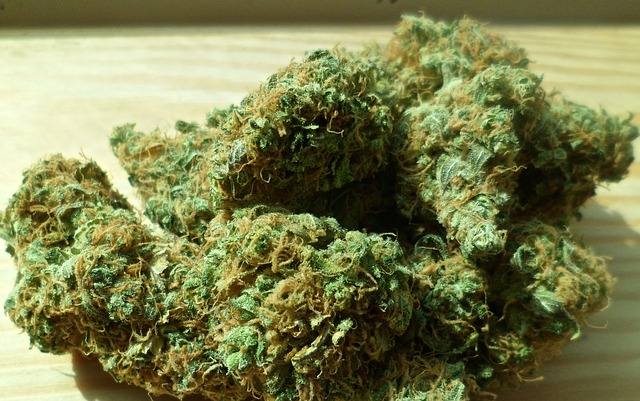 The 2015 legislative session is officially underway, which means our focus will shift slightly from reporting Blog worthy criminal incidents to updating readers with the progress of new potential criminal laws. Last year was quite eventful from a criminal law standpoint; simple possession of marijuana was transformed from an offense punishable by 90 days in jail to a civil infraction punishable by a fine of a hundred bucks, and the medical marijuana program was given legs after a year in the doldrums. While medical marijuana is still a year or so away from being operational, the decriminalization law has already impacted hundreds of would be defendants, cops, state’s attorneys, and of course criminal defense lawyers. It is difficult to imagine that this year’s session will produce the same type of splash, but advocates of legalized recreational marijuana would certainly beg to differ.
The 2015 legislative session is officially underway, which means our focus will shift slightly from reporting Blog worthy criminal incidents to updating readers with the progress of new potential criminal laws. Last year was quite eventful from a criminal law standpoint; simple possession of marijuana was transformed from an offense punishable by 90 days in jail to a civil infraction punishable by a fine of a hundred bucks, and the medical marijuana program was given legs after a year in the doldrums. While medical marijuana is still a year or so away from being operational, the decriminalization law has already impacted hundreds of would be defendants, cops, state’s attorneys, and of course criminal defense lawyers. It is difficult to imagine that this year’s session will produce the same type of splash, but advocates of legalized recreational marijuana would certainly beg to differ.
Continue reading →
New Maryland Criminal Laws In Effect
 Soon after the close of each year’s legislative session the governor signs dozens of bills into law. The public typically hears about these new laws at the three main stages when the media can report a concrete story. First we read about a bill being introduced in the house or senate, which is usually in January. Then there’s an article or two about the bill’s passage by the General Assembly a couple months later, and finally we hear about the governor signing on the dotted line in the spring. After the governor signs the bills there is a yearly downtime that usually lasts about six months until the fall when the laws go into effect. In some years there is no buildup to the October 1st effective date because the new laws simply don’t generate enough interest. This year is not one of those years. It’s the criminal laws that often receive the most attention, and in 2014 there were a host of them that the public and media were following. No new law has received as much press as marijuana decriminalization, and although as times it seemed like a pipedream, as of today we can officially say it is not a crime to possess less than 10 grams of pot in Maryland.
Soon after the close of each year’s legislative session the governor signs dozens of bills into law. The public typically hears about these new laws at the three main stages when the media can report a concrete story. First we read about a bill being introduced in the house or senate, which is usually in January. Then there’s an article or two about the bill’s passage by the General Assembly a couple months later, and finally we hear about the governor signing on the dotted line in the spring. After the governor signs the bills there is a yearly downtime that usually lasts about six months until the fall when the laws go into effect. In some years there is no buildup to the October 1st effective date because the new laws simply don’t generate enough interest. This year is not one of those years. It’s the criminal laws that often receive the most attention, and in 2014 there were a host of them that the public and media were following. No new law has received as much press as marijuana decriminalization, and although as times it seemed like a pipedream, as of today we can officially say it is not a crime to possess less than 10 grams of pot in Maryland.
Continue reading →
Regulations Unsettled For Maryland Medical Marijuana
 As the Medical Marijuana Commission inches closer to establishing a viable program in Maryland, there are still numerous key details that need to be hammered out. The Commission was established soon after the governor signed the revised medical marijuana bill into law, and its fifteen members were tasked with drafting regulations for the program. These regulations were supposed to be handed over to the health secretary and a group of state lawmakers this week, but now it appears the commission will seek public comment before submitting the program regulations for formal review. The commission made the draft regulations available to the public by posting them on the DHMH website, and they have already received abundant feedback. The four page PDF, which can be found here, outlines the application process for obtaining a growers license in Maryland, and the criteria for which applications will be judged. Those reading the draft application for the first time may be surprised just how demanding the process will be, and the commission can afford to be selective considering there will be only fifteen licenses awarded in the next two years.
As the Medical Marijuana Commission inches closer to establishing a viable program in Maryland, there are still numerous key details that need to be hammered out. The Commission was established soon after the governor signed the revised medical marijuana bill into law, and its fifteen members were tasked with drafting regulations for the program. These regulations were supposed to be handed over to the health secretary and a group of state lawmakers this week, but now it appears the commission will seek public comment before submitting the program regulations for formal review. The commission made the draft regulations available to the public by posting them on the DHMH website, and they have already received abundant feedback. The four page PDF, which can be found here, outlines the application process for obtaining a growers license in Maryland, and the criteria for which applications will be judged. Those reading the draft application for the first time may be surprised just how demanding the process will be, and the commission can afford to be selective considering there will be only fifteen licenses awarded in the next two years.
Continue reading →
Federal Judge Upholds Maryland Gun Law
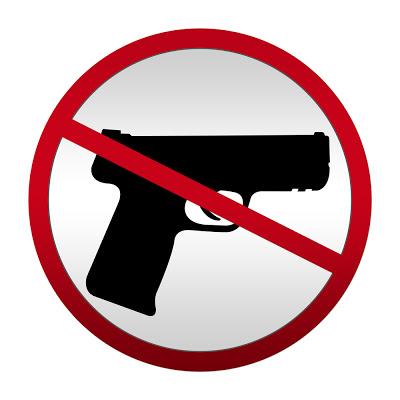 The Maryland Firearms Safety Act went into effect almost one year ago, and at that time most of the news stories were centered on record sales at state gun shops, which resulted in many of the popular handgun models being sold out at local stores. There were also numerous articles about overwhelming demand for the state police to complete background checks. Those who purchased firearms prior to the October 1st, 2013 effective date were not required to submit their fingerprints, but due to the shear number of applications were still forced to wait months for law enforcement clearance. There were a few scattered articles about those in opposition to the strict law, such as the NRA and other Second Amendment lobbyist groups. Each of these groups expressed a strong desire to challenge the law, but at the time it just didn’t seem as if they would have any success. Marylanders were acting as if the strict statewide gun regulations were there to stay, and last summer’s rush to buy firearms proved that. And now we can officially say that the Firearms Safety Act is in fact here to stay, as a federal judge recently upheld it as constitutional in a 47-page opinion.
The Maryland Firearms Safety Act went into effect almost one year ago, and at that time most of the news stories were centered on record sales at state gun shops, which resulted in many of the popular handgun models being sold out at local stores. There were also numerous articles about overwhelming demand for the state police to complete background checks. Those who purchased firearms prior to the October 1st, 2013 effective date were not required to submit their fingerprints, but due to the shear number of applications were still forced to wait months for law enforcement clearance. There were a few scattered articles about those in opposition to the strict law, such as the NRA and other Second Amendment lobbyist groups. Each of these groups expressed a strong desire to challenge the law, but at the time it just didn’t seem as if they would have any success. Marylanders were acting as if the strict statewide gun regulations were there to stay, and last summer’s rush to buy firearms proved that. And now we can officially say that the Firearms Safety Act is in fact here to stay, as a federal judge recently upheld it as constitutional in a 47-page opinion.
Continue reading →
Spike In Maryland Drug Overdoses Prompts Government Action
In the first three months of 2014 Maryland witnessed a dramatic increase in the amount of statewide drug overdose deaths. From January through March 2014 there have been 252 deaths, 148 of which were related to heroin. The total number is 33 percent higher than the first three months of last year, and remarkably is higher than the total number of traffic fatalities in the same time frame. While the majority of these deaths have occurred in areas such as Baltimore City that are quite familiar with drug overdoses, there have also been a staggering number of deaths in the suburbs. For communities in Ann Arundel, Frederick, and Harford counties drug overdoses are not commonplace, and seem to make news headlines each time they occur. The news headlines generate talk among the public, which in turn places pressure on the police and the government. Police forces around the state have already taken action, placing more emphasis on breaking up drug trafficking rings that deal with dangerous narcotics such as heroin prescription drugs. Additionally law enforcement officers are receiving thorough training on drug overdoses, and are now carrying the anti overdose medicine Narcan in their squad cars. There is no doubt that when the 2015 legislative session rolls around we will see bills specifically designed to address the increased amount of overdoses. But for now the state government has only responded in the form of an executive order from the governor’s office.
Continue reading →
Marijuana Possession Decriminalized In D.C.
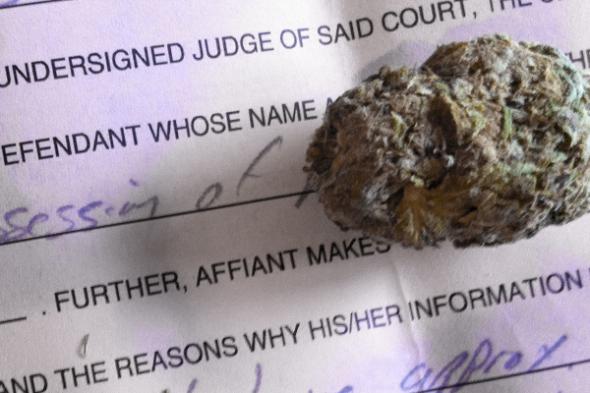 While Maryland will have its day in October, possession of a small amount of marijuana has officially been decriminalized in Washington D.C. At midnight on Thursday, metropolitan police officers were ordered to keep their handcuffs in their holsters in favor of a citation booklet for all marijuana possession cases less than one ounce. And while there is still uncertainty surrounding the long-term fate of this new law, as it stands today simple possession of pot is punishable by a $25 fine, $50 less than the punishment for littering. D.C. cops have been provided with wallet sized cards for their own reminders, as well as to hand out to the public. The cards provide a general overview of the most important changes that are laid out in the Marijuana Possession Decriminalization Amendment Act of 2014. The five bullet points on the card include a line about the fine and the fact that police may confiscate the marijuana, the requirement of disclosing your name to cops upon being cited (and being subject to arrest if you refuse), the fact that smoking in public and possessing more than an ounce is still a crime, a reminder that driving under the influence of drugs is a crime, and that federal officers may still arrest anyone in the District for possession under federal law.
While Maryland will have its day in October, possession of a small amount of marijuana has officially been decriminalized in Washington D.C. At midnight on Thursday, metropolitan police officers were ordered to keep their handcuffs in their holsters in favor of a citation booklet for all marijuana possession cases less than one ounce. And while there is still uncertainty surrounding the long-term fate of this new law, as it stands today simple possession of pot is punishable by a $25 fine, $50 less than the punishment for littering. D.C. cops have been provided with wallet sized cards for their own reminders, as well as to hand out to the public. The cards provide a general overview of the most important changes that are laid out in the Marijuana Possession Decriminalization Amendment Act of 2014. The five bullet points on the card include a line about the fine and the fact that police may confiscate the marijuana, the requirement of disclosing your name to cops upon being cited (and being subject to arrest if you refuse), the fact that smoking in public and possessing more than an ounce is still a crime, a reminder that driving under the influence of drugs is a crime, and that federal officers may still arrest anyone in the District for possession under federal law.
Continue reading →
 Criminal Defense Lawyer Blog
Criminal Defense Lawyer Blog

